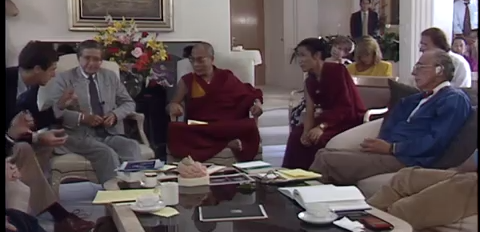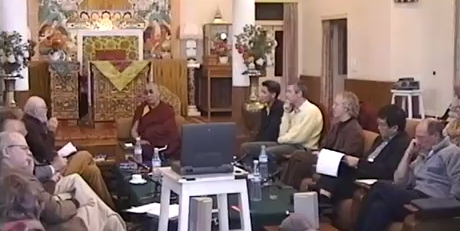This project is a theoretical and experimental pilot investigation of the impact of contemplative practices on concepts — the fundamental building blocks of cognition. The exploration focuses on intentionality of concepts as their property of representing entities whilst being detached from them. Terms such as ‘metacognitive insight’ (Teasdale et al., 2002), ‘re-perceiving’ (Shapiro et al., …
Topic Archives:
Introspective reliability: Synergizing Buddhist and contemporary viewpoints
First-person reports of phenomenological states are the starting point for phenomenology (including Buddhist phenomenology) and the scientific study of consciousness. The vipassana meditation technique, including the Open Monitoring meditation and Mindfulness-Based Stress Reduction (MBSR), both of which are secularized versions of vipassana, are reliant on the reliability of First-person reports of phenomenological states. Nonetheless, the …
Continue reading “Introspective reliability: Synergizing Buddhist and contemporary viewpoints”
Building a new theory of contemplative interactions for healthcare
Clinicians (physicians and nurses) who care for patients with serious illness face significant challenges, both intra-personal and inter-personal, that if unaddressed result in stress, burnout, and exacerbation of patient suffering. Recent developments in contemplative neuroscience and theories of compassion indicate that the time is ripe to build a better understanding of how contemplative practice could …
Continue reading “Building a new theory of contemplative interactions for healthcare”
Where’s the Breath? An Interdisciplinary Investigation of Breath Awareness Placement
This will be a Scientific Pilot Study of the significance of where practitioners place their attention when they are doing breath awareness meditation. We will concentrate on two distinctive forms of Buddhist meditation, mindfulness practice as drawn from normative Pali Canon texts that emphasize placing the attention on the nostrils and zazen texts from the …
Meditation in Context
This is a study of the role that social and cultural context play in Buddhist meditation techniques, especially those that fall under the category of vipassana and related practices. It argues that such contexts inform not only practitioners’ explicit understandings of their practice of these techniques, but also their pretheoretical, tacit, implicit orientations, and even …
Philosophical and historical accounts for the neuroscientific investigation of human spirituality
Although human spirituality has long been considered impenetrable to empirical investigation, recent cognitive and affective neuroscience studies have started the neuroscientific exploration of the mental processes and the neural underpinnings underlying spiritual and religious experiences. The scientific investigation of such complex phenomena, however, cannot proceed in the absence of a deep philosophical conceptualization of human …
1987 Mind & Life Dialogue I
This groundbreaking meeting, which began the Dialogue series, was inspired by a shared interest in opening a conversation between Buddhist thought and cognitive science to mutually inform and enrich these two distinct modes of exploring existence. LOCATION: Dharamsala, India Participants
1989 Mind & Life Dialogue II
Buddhism and neuroscience have parallel but quite distinct traditions for examining consciousness and its relation to the body. These traditions go back at least 2,500 years to the Buddha and Hippocrates. While both disciplines place great emphasis on experience and reason, their methods of research and verification are radically different. While neuroscience examines mind-brain processes …
1990 Mind & Life Dialogue III
The topic of this Dialogue is the role of emotional states in physical health. Over the past 2,500 years, Buddhists have explored this topic through contemplative practices and logical analysis. Their research has been conducted within the context of spiritual disciplines aimed at the release from physical and mental suffering. The principal means for pursuing …
1997 Mind & Life Dialogue VI
This Dialogue explores contemporary understandings of the natural world that have arisen through groundbreaking advances in physics and astrophysics made during the 20th century. These advances have exerted a profound influence on our conception of the world, changing it fundamentally from the views that reigned until the end of the 19th century. For example, through …




